18 Facts You Should Know about Lionfish
You may have heard about lionfish: they’re sort of a big deal around these parts (Florida, that is). Okay, you might be thinking: “what exactly is the big deal about lionfish?” Well, let’s explore the facts.
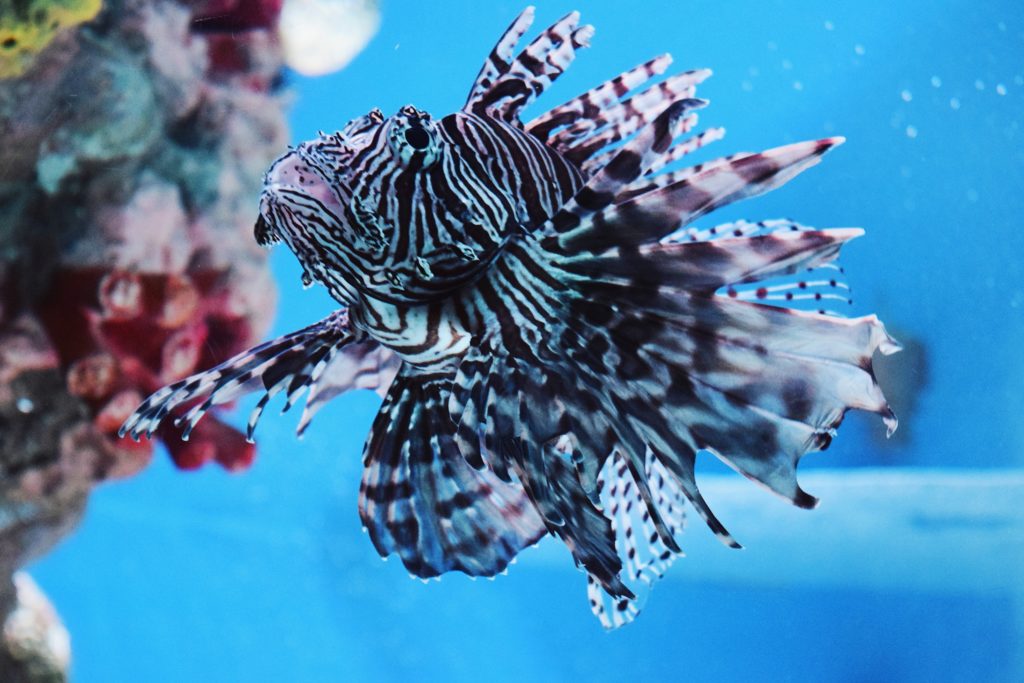
What are Lionfish?
1. Lionfish are an invasive species
Lionfish (Pterois volitans) were introduced to the Gulf of Mexico, Caribbean Sea, and the Atlantic Ocean decades ago. Usually residing on coral reefs, they have had detrimental impacts to the environment. For this reason, lionfish are considered an invasive species in these areas.
What is an invasive species?
An invasive species is a nonnative plant or animal that was somehow introduced to a specific location. Typically, an invasive species is harmful to the environment, human health, or the local economy.
When it comes down to it, THIS is why they’re are a big deal.
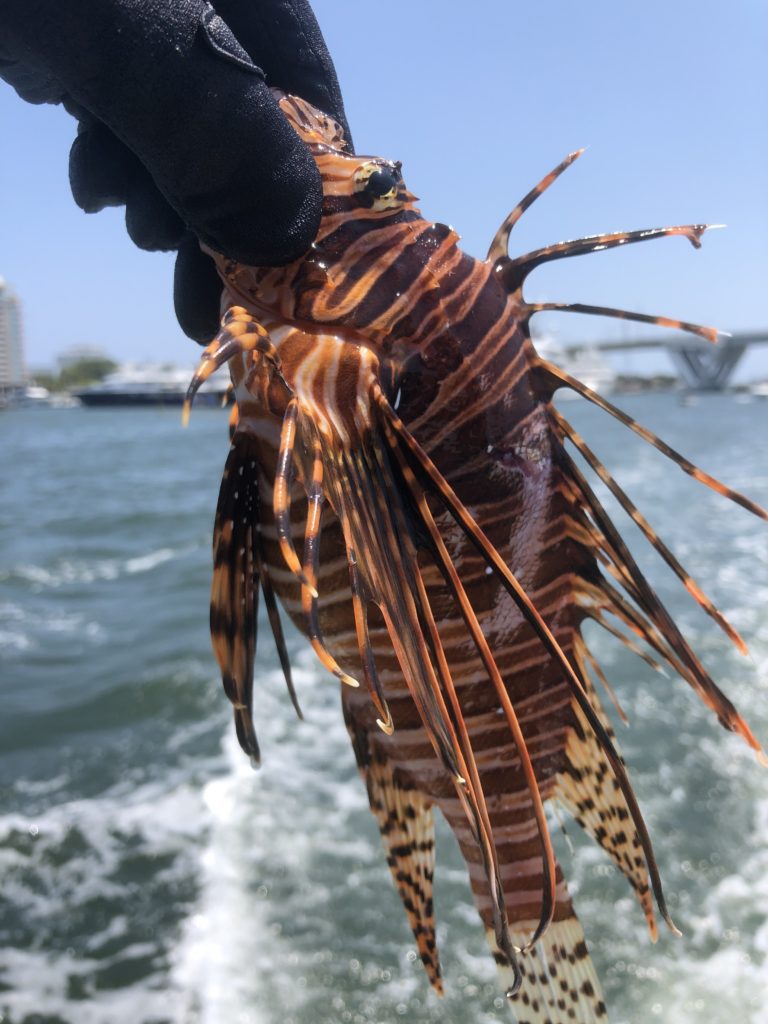
Where did Lionfish come from?
2. Lionfish are from oceans away
Lionfish are originally from the Indo-Pacific, a biogeographic region consisting of the Indian Ocean, the western and central Pacific Ocean, and the seas connecting the two in the general area of Indonesia.
How did Lionfish get here?
3. They’re a pretty sight to see
Have you noticed how cool they look? Believe it or not, this may be the reason they actually got here in the first place!
The exotic pet trade is a real thing and lionfish are apart of it. I mean look at them, how cool?! In all likelihood, someone had one or two in their aquarium and released it into our oceans. The eggs of those fish eventually spread via ocean currents and boom! Full-on invasion!
How did Lionfish get their name?
4. They have their own lion’s mane
When hunting, lionfish spread their pectoral fins far and wide to corral prey. From the perspective of the prey, this replicates the look of a lion’s mane (not that the fish about to be eaten would really make that connection).
Scientists are so creative, aren’t they?!
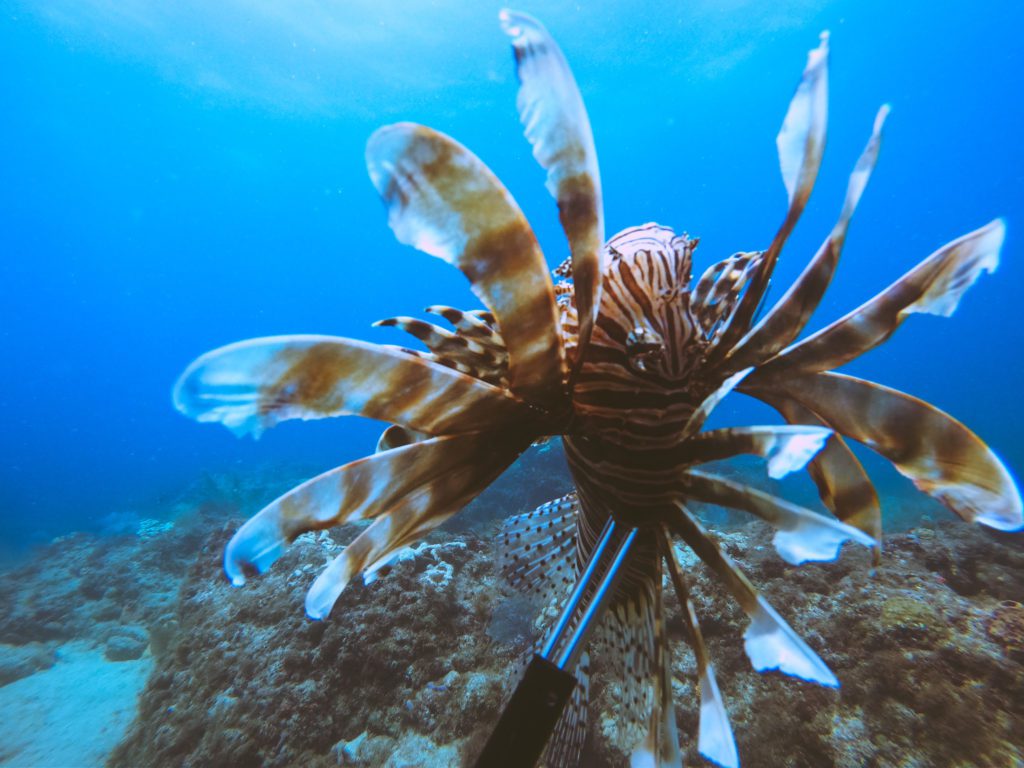
Why are lionfish a problem?
5. Their mouth’s the limit
Lionfish are gape-limited predators. What does that mean? They’ll eat whatever fits into their big mouth! Including vital species crucial for healthy oceans.
6. Expandable stomachs
Imagine eating anything and everything that fits into your mouth. Now, imagine that your stomach can expand 30x it’s normal size to accommodate everything you just ate. That’s what these guys can do! Yikes!
7. They can literally eat themselves to death
The appetite of a lionfish knows no end. With their large mouths and expandable stomachs, they can actually grow fat in their body and die of fatty liver disease. This condition is familiar to humans but nonexistent to other fish!
8. They’re adaptable creatures
Charles Darwin would have a field day with lionfish. They’re incredibly adaptable as they can live in different environments and depths.
Researchers have found the invasive species as far down as 1,000 feet below sea level. These depths are too deep for any human to explore (other than a submarine, of course). Meaning, their numbers will continue to increase as they cannot be removed from these depths.
9. No natural predators exist
The invasive species have no natural predators in the Atlantic, Caribbean, or Gulf. Consequently, humans are the only species that will remove them from our environment. Just be careful doing it!
For more: Your Complete Guide to Hunting Lionfish
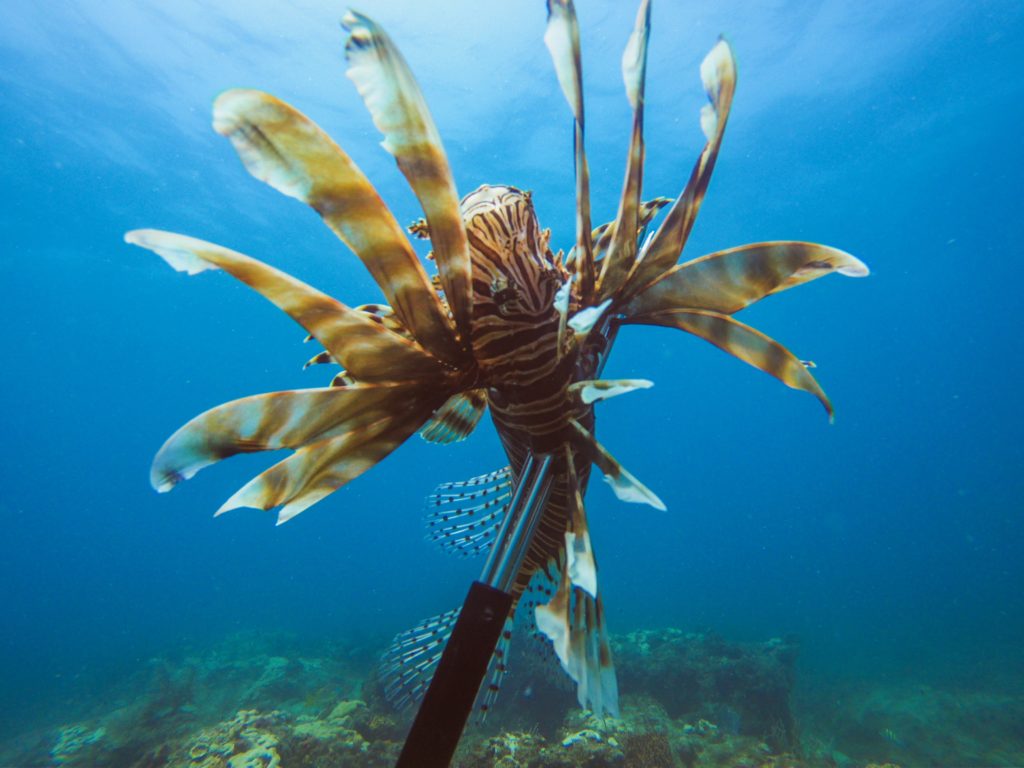
10. Look but don’t touch their spines!
Lionfish have no natural predators partly due to their venomous spines. These 18 spines are located on the dorsal, pelvic, and anal fins of the fish.
If poked, the venom is injected into the area causing intense pain, redness and swelling. The venom enzymes can be broken down by pouring hot water onto the wound.
Laura has been poked before! 10/10 would NOT recommend.
11. Good at reproducing
After one year, if a male is present, females can reproduce every 3-4 days releasing up to 30,000 eggs each time! Natural ocean currents take these eggs and spread them all over, furthering the invasion! Again, Charles Darwin would be proud.
12. Lionfish even effect human health and economy
Lionfish eat anything and everything, decimating native species populations. This includes commercially important species like lobster and juvenile snapper (yum!). Additionally, the invasive species eats environmentally important species that keep our coral reefs alive (yikes!).
A rippling effect throws off the delicate balance of our oceans’ health. Red tide, dying corals, increased carbon dioxide, and depleting fish stock are all consequences. Not good for our health and economy!
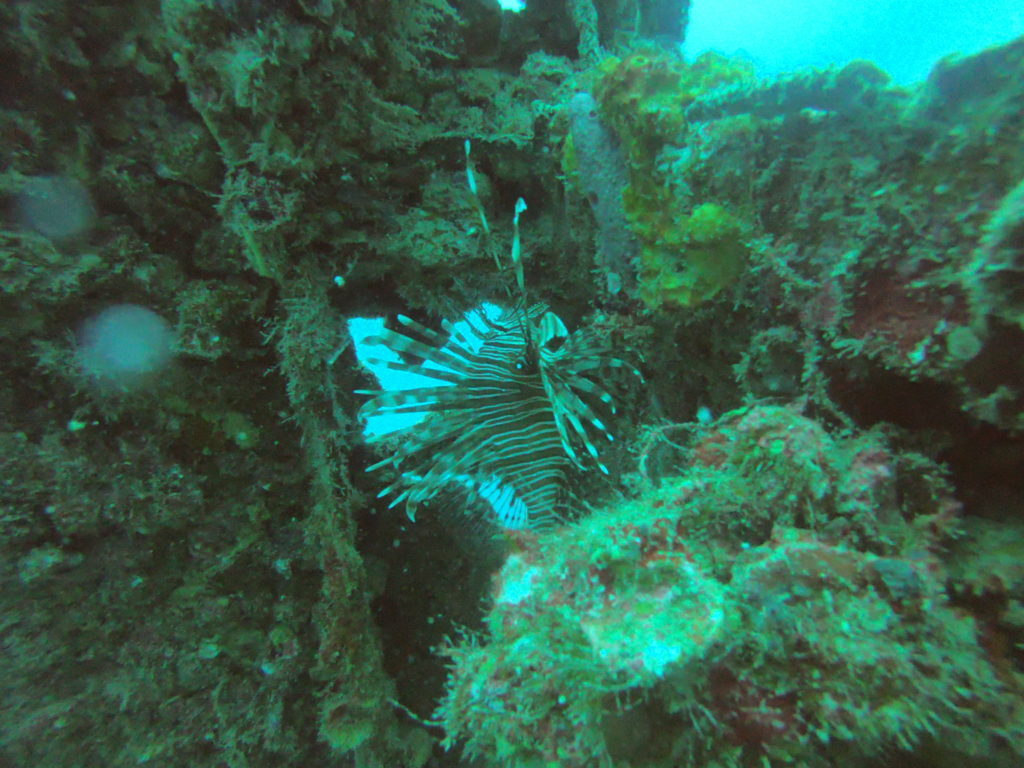
Can you eat lionfish?
13. They are venomous, not poisonous
As mentioned earlier, lionfish have 18 venomous spines but are not poisonous themselves. The difference: venom is injected, poison is ingested.
Once the spines are removed, all the venom is gone. Making them safe to eat!
14. Lionfish are the most sustainable fish you can eat
Simply put, eating lionfish is good for the environment!

15. White, flaky, and delicious
Do they taste good? They sure do!
Lionfish have the desired “white, flaky, and mild” flavor we all crave in fish. They’re the perfect ingredient for tacos, ceviche, soups, fillets, and more!

How do you catch lionfish?
15. Rod and reel don’t work so well
Lionfish are essentially impossible to catch via rod and reel. How do we remove them? By spear!
Removing the invasive species is best done via scuba diving, snorkeling, and free diving with a specific set of gear.
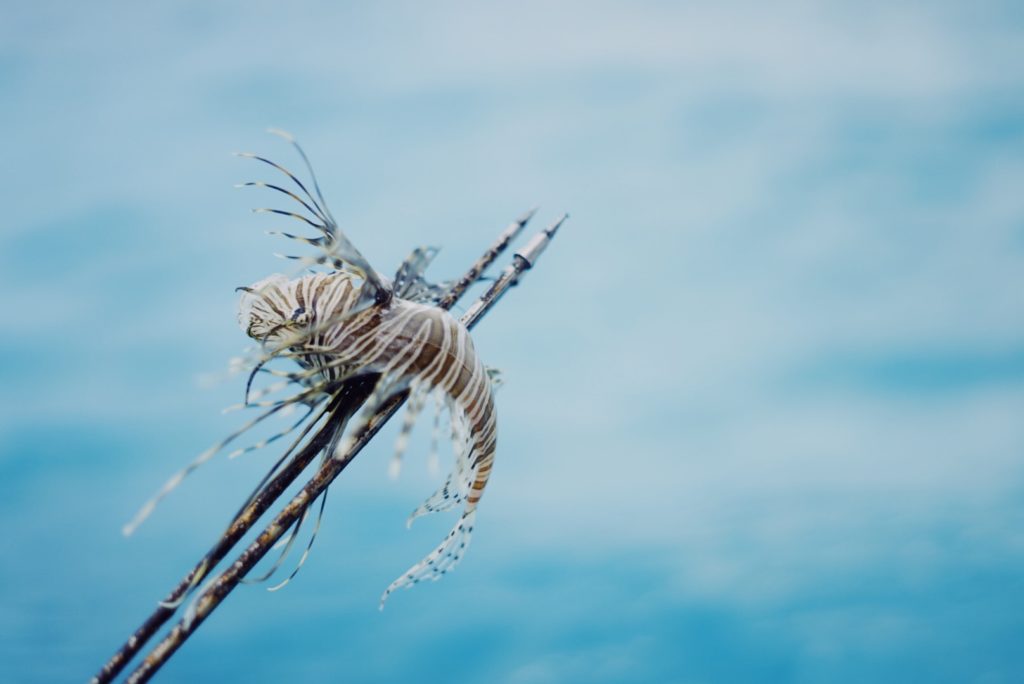
16. Hide by day, hunt by night
During the day, they hide under crevices in coral reef or other structures. At night, dawn and dusk, they are out to feed! For best results, you should hunt at night!
For more: Tips to Catch More Lionfish
Is it worth it to remove lionfish?
17. Removal programs are happening everywhere
Want to get more involved? You’re in luck! Entire organizations dedicate their resources for removal programs! The FWC keeps an updated calendar of events you can get involved with!
18. Removal programs are effective
Research has shown that local removal programs DO make an impact. Lionfish numbers decrease while native fish populations increase!

The Fact About Lionfish
The species has become a perfect storm to aid in the destruction of our natural coral reefs – but with removal programs our outlook is more positive by the day.
What Can You Do to Help?
Hunt them! Eat them! Buy products made from their fins such as jewelry. You can help!
Enjoy this Post? Pin it!
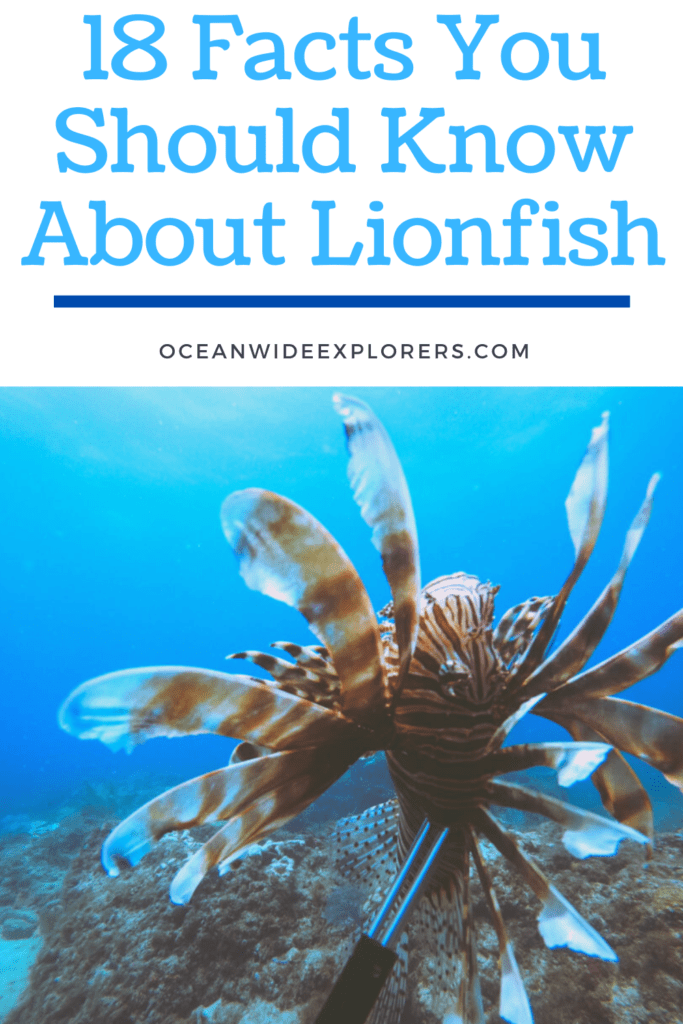
Read More On this Topic
We hope you enjoyed the facts about these destructive species. Hopefully you’ll find it useful on your next adventure! Here are a few more ocean-loving articles we think you should read next:
- Your Complete Guide to Hunting Lionfish
- The Gear You Need to Hunt Lionfish
- 11 Tips to Catch More of the Invasive Species
Leave a comment below about your experience with invasive species! What have you done to help combat this invasion?

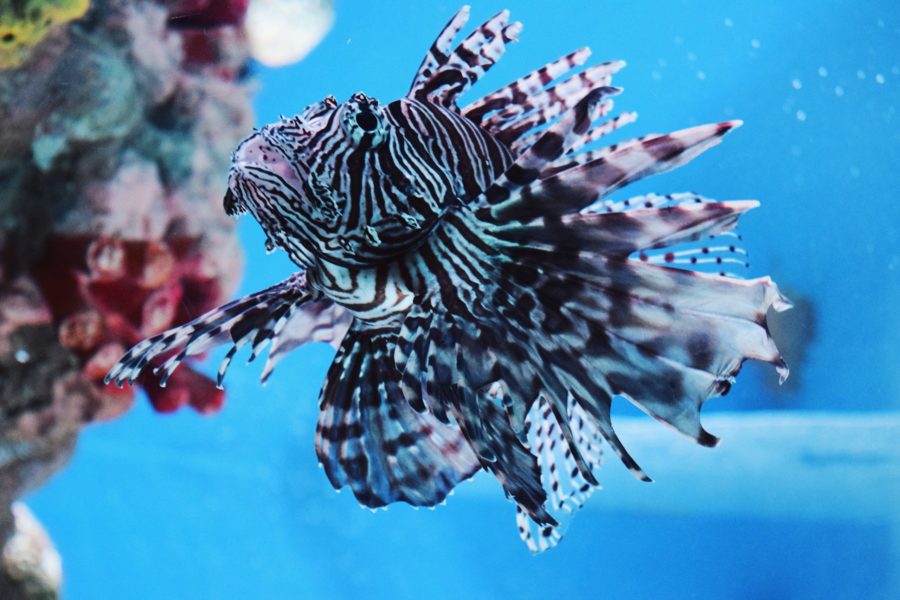
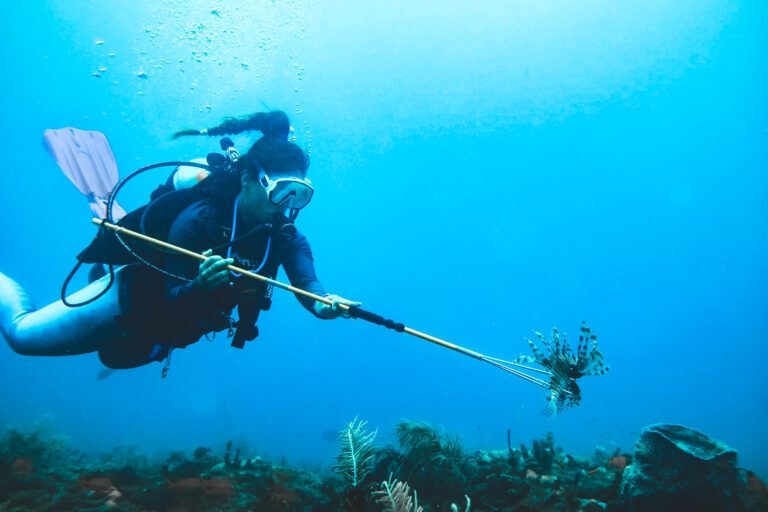
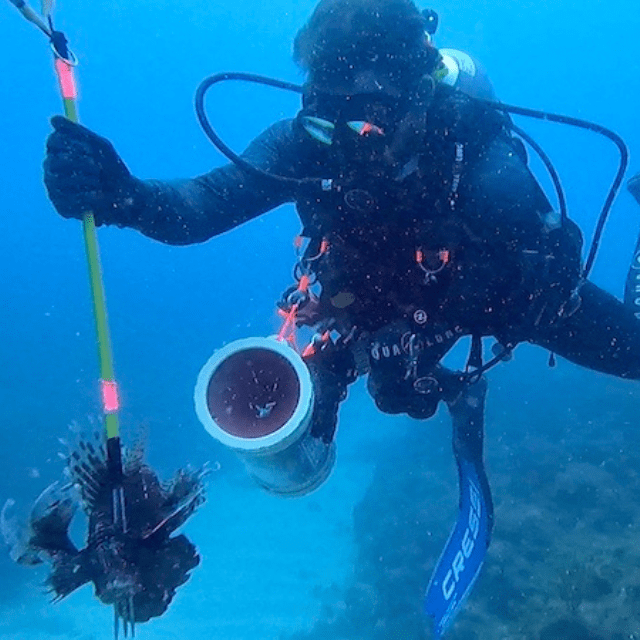
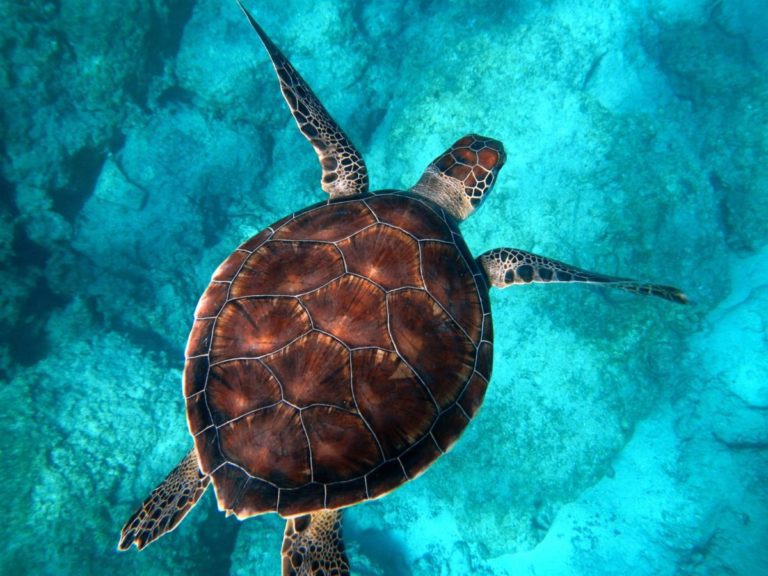
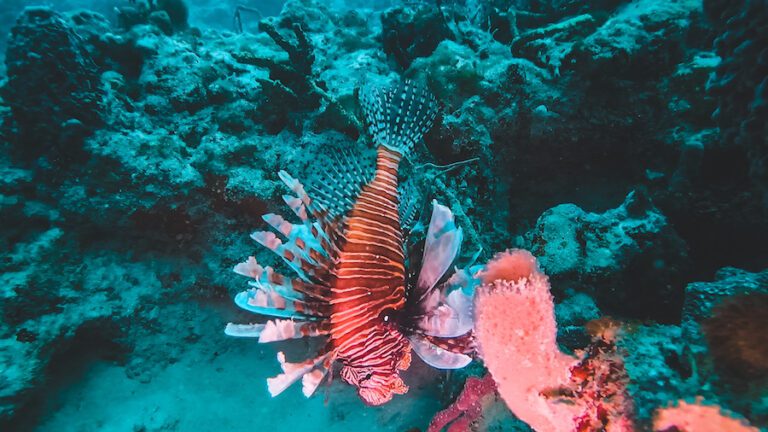
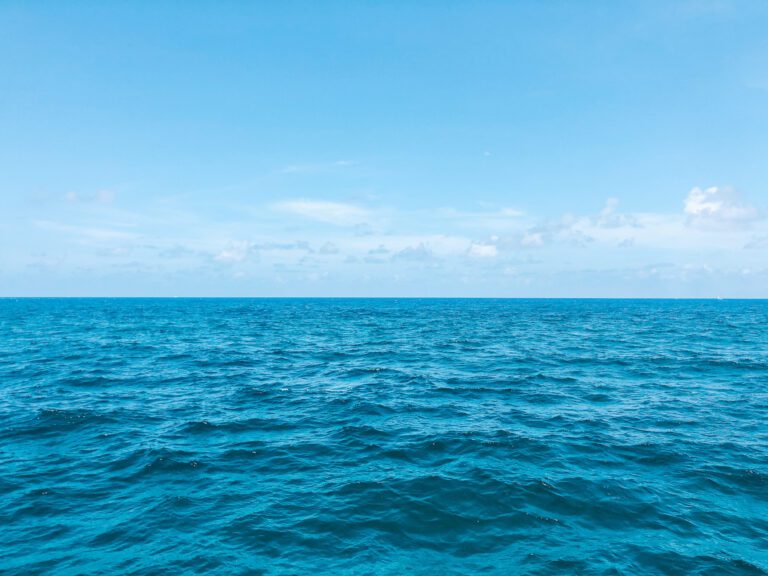
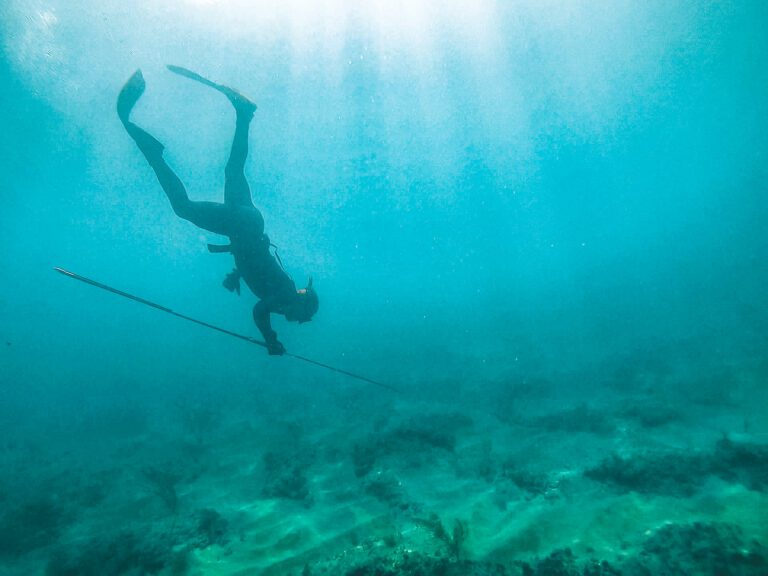
2 Comments